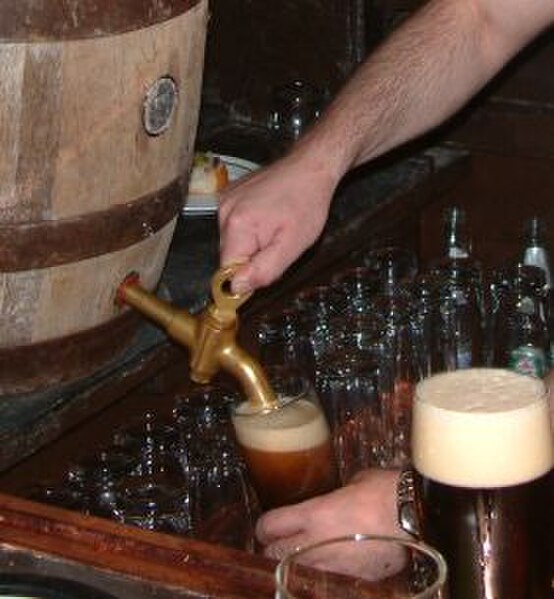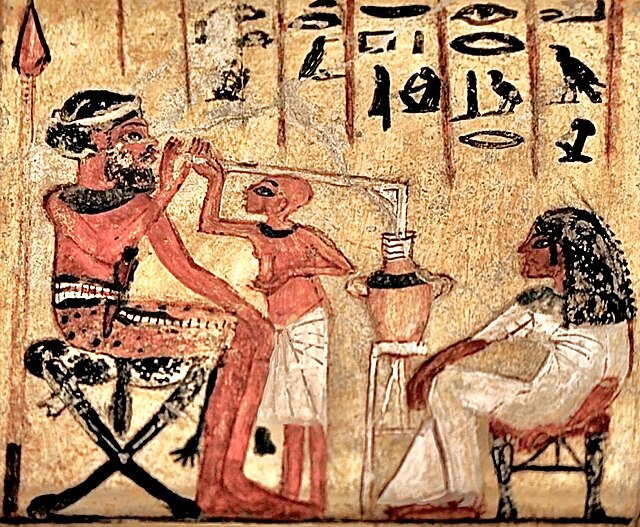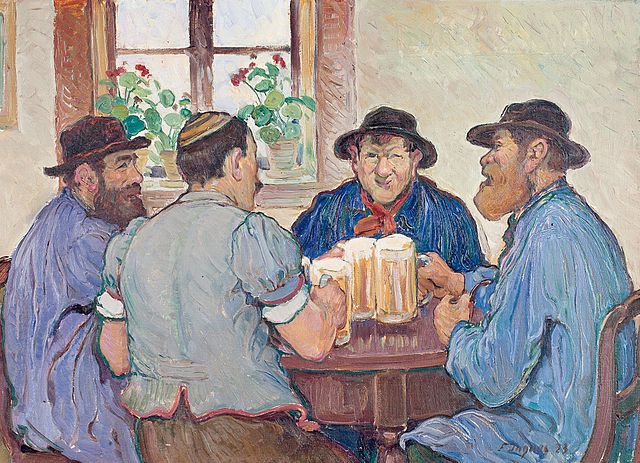The Reinheitsgebot is a series of regulations limiting the ingredients in beer in Germany and the states of the former Holy Roman Empire. The best known version of the law was adopted in Bavaria in 1516, but similar regulations predate the Bavarian order, and modern regulations also significantly differ from the 1516 Bavarian version. Although today the Reinheitsgebot is mentioned in various texts about the history of beer, historically it was only applied in the duchy, electorate, then Kingdom of Bavaria and from 1906 in Germany as a whole, and it had little or no effect in other countries or regions.
Hops
A field of barley
Sign celebrating the 1487 Munich Reinheitsgebot
Some German brewers continue to use the word "Reinheitsgebot" in labeling and marketing.
Beer is one of the oldest alcoholic drinks in the world, the most widely consumed, and the third most popular drink after water and tea. Beer is produced by the brewing and fermentation of starches from cereal grains—most commonly malted barley, although wheat, maize (corn), rice, and oats are also used. The fermentation of the starch sugars in the wort produces ethanol and carbonation in the beer. Most modern beer is brewed with hops, which add bitterness and other flavours and act as a natural preservative and stabilising agent. Other flavouring agents, such as gruit, herbs, or fruits, may be included or used instead of hops. In commercial brewing, natural carbonation is often replaced with forced carbonation.
Schlenkerla Rauchbier, a traditional smoked beer, being poured from a cask into a beer glass
Ancient Egyptian painting, 18th dynasty, reign of Akhenaten, c. 1300 BC, showing Syrian mercenary drinking beer through a straw. Egyptian Museum of Berlin
François Jaques: Peasants enjoying beer at pub in Fribourg (Switzerland, 1923)
Malted barley before roasting








